We learn english 5 класс – Презентация к уроку по английскому языку (5 класс) на тему: 5 класс “We learn English” | скачать бесплатно
Урок знаний и творчества в 5 классе по теме: ” We Learn English”
Урок знаний и творчествав 5 классе по теме:
“We Learn English”.
Учитель: Фаталиева С.П.
с.ЛАКА
The Plan of the Lesson
The Theme: We Learn English.
Aims of the lesson: 1. To consolidate the language material
2. To develop pupils’ skills in reading, writing and speaking.
3. To educate pupils how to work in pairs and groups, how to
listen to each other, to love English.
The Language Material: 1. Revision of the previous language material and lexica;
2. Phonetic material: the ABC-song
Visual and Technical Aids: a map of Kazakhstan, pictures, cards, textbooks,
tables, crosswords, a tape-recorder.
The Procedure of the Lesson
1. Organization moment.
a) a short conversation with the pupil on duty;
– Who is on duty today?
– What’s your name?
– What’s your surname?
– How old are you?
– Which class are you in?
– Where are you from?
– Where are you from in Kazakhstan?
– What’s your address?
– When is your birthday?
2. Warm up.
– What season is now?
– Is it autumn?
– Is it summer?
– Is it spring or winter?
– Is it sunny today?
– Is it windy?
– Is it raining now?
– Is it cloudy or foggy today?
– Tell some words about the weather today.
3. Revision of the material of the year.
a) the ABC – song.
The task is to find some missed letters of the English alphabet.
|
L W N Y O J Q A V B I E G Z D R U H M C T S P |
(F, K, X)
b) Numerals.
The task is to point numerals from 1 up to 25 in the right order and call them.
-
7
22
2
13
18
8
19
10
3
15
12
14
5
16
6
20
24
1
9
21
17
23
11
25
4
c) Crosswords.
The task is to guess these crosswords using words from the theme “Our Flat”.
1. Across: 1. Пол. 2. Диван. 3. Комната. 4. Картина. 5. Телефон.
Down: 6. Шифоньер. 7. Лампа. 8. Камин. 9. Кабинет.
2. Across: 1. Кухня. 2. Лампа. 3. Ванная комната. 4. Дверь.
Down: 5. Стул. 6. Зеркало.
d) Colours.
Let’s play the game. It is called “Kaleidoscope”
(Шесть учеников становятся в шеренгу перед классом. Остальные сидят за партами. Каждый из тех, кто стоит, придумывает себе какой-либо цвет, например: red, green, blue, yellow, pink и др. – и называет его сидящим ученикам. Ученики, которые сидят за партами, закрывают глаза, а в это время «цвета» меняются местами. Сидящие ученики открывают глаза и называют цвета в том порядке, в котором выстроились у доски играющие).
One more task. If you know colours well, you can find some words on this table:
-
ger
de
beau
noon
com
ta
af
le
ti
mo
pu
ry
ter
ham
re
bur
sec
na
ful
ter
(Lemonade – red, secretary – orange, computer – blue, beautiful – brown, hamburger – green, afternoon – black)
e) Text.
The text is on the blackboard. There are pictures instead of some words. The task is to write words correctly instead of pictures.
Lucy usually gets up at
7.30. She opens her eyes and looks at the clock.She goes to the bathroom, cleans her teeth and washes her hands and face. Then Lucy does her morning exercises. It is 8 o’clock already. She has breakfast in the kitchen, puts her dress on. After that she goes to school. She goes to school by bus. She has five classes every day.
4. Pair Work.
There are some dialogues on different themes. Each pair of pupils chooses the dialogue they want and prepare and act it as a role play. Here are some examples:
– Hello!
– Hello!
– What’s your name?
– My name is … And what’s your name?
– My name is … How old are you?
– I’m eleven. And you?
– I’m eleven too. Which class are you in?
– Yes, I am. Where are you from?
– I’m from Kazakhstan.
– Hello!
– Hello! How are you?
– I’m very well, thank you? What about you?
– I’m OK, thanks.
– Have you got a mother?
– Yes, I have.
– What’s her name?
– Her name is …
– And what is about your father?
– His name is…
– How many sisters or brothers have you got?
– I have got a sister and two brothers.
– Hi, Marina!
– Hello, how are you?
– Not bad, thank you.
– Have you got a camera?
– Yes, I have. Have you?
– No, I haven’t. Can I borrow your camera?
– Sure.
– Thank you.
– You are welcome.
– Hello, Tanya!
– Hello, Kolya!
– Have you got pets?
– Yes, I have got a dog and a cat. Have you?
– No, I haven’t. What colour is your cat?
– It’s black and white.
– What colour are its eyes?
– They are black.
– Does it like to play?
– Certainly. We play together every day.
– When is your birthday?
– It is in winter.
– In which month is it?
– It is in July. And when is yours?
– Mine is on the tenth of September.
– What is the date today?
– It’s the seventeenth of May.
– What time is it now?
– It’s 5 o’clock. My watch is right.
– Thank you. Good-bye!
– Have you got a family?
– Yes, I have.
– Have you got a father?
– Yes, I have.
– What does he do?
– He is a bank manager.
– Oh, really? And what does your mother do?
– She is a housewife.
– Have you got a brother?
– Yes, I have.
– What does he do?
– He is a student.
– What subjects do you like?
– I like English and Math? And what subjects do you like?
– I like Computer Studies, Geography and Botany.
– Are you good at History?
– No, I’m not. I don’t like History. And you?
– But I like History. When does your school start?
– Our school starts at 9 o’clock.
– How many lessons have you got every day?
– We have 5 lessons every day.
– When does your school finish?
– It finishes at 3 o’clock.
– Good evening!
– Good evening!
– Would you like to order?
– Yes, please.
– What would you like to order?
– I’d like chicken, please.
– You have a choice of vegetables. Would you like rice or potatoes?
– Potatoes, please.
– What would you like to drink? Coffee, tea, juice?
– A cup of tea, please.
– Where is Kazakhstan?
– It’s in Asia.
– Where is Astana?
– It’s in the north of Kazakhstan.
– Where is Karaganda?
– It’s in the centre of Kazakhstan.
– Where is Aktau?
– It’s in the west of the Republic.
– Where is Semei?
– It’s in the east.
– Where is Almaty?
– It’s in the south of Kazakhstan.
– Where is our village?
– It’s near Karaganda.
6. At the end of our lesson we’ll show a short play called “Gingerbread Man”
The main characters are Gingerbread Man, Old Woman, Cow, Dog and Cat. I think
you will like it.
(Pupils use costumes, masks and different things such as a kettle, some jars, a basket, a glass of milk).
Teacher: Thank you very much, dear boys and girls for the lesson. Now I want to give you excellent marks. You were very active and good at the lesson, I’m very glad.
7. The Home task is to prepare a crossword using the words from our lesson.
tilimen.org
Урок-смотр знаний по английскому языку в 5 классе
Aim: to monitor pupils’ progress in studying the material of the 5th class.
Plan of the lesson.
Good morning dear students and guests! Today we have an unusual lesson. We must show everything we’ve studied during this school year.
I’d like to wish you good luck, be attentive and work hard to get good marks.
What’s your name?
Where are you from?
How old are you?
What day of the week is it today?
What date is it today?
What month is it now?
What season is it now?
What is the weather like today?
What\s your address?
Have you got a sister?
Have you got a brother?
Have you got a pen?
Have you got a bike?
How many books have you got?
What’s your mother like?
What time is it?
What colour is your shirt?
What colour is your skirt?
What colour is your pencil-box?
Can you play tennis?
Can you play chess?
Can you ride a bike?
What can you do?
When is your birthday?
What does your father do?
What is your favourite subject?
What time do you get up?
What time do you go to school?
How many lessons do you have every day?
What time do you come home?
What do you do after school?
What time do you go to bed?
How many boys are there in your class?
How many girls are there in your class?
Do you like our school?
Is there a library in the school?
Are there computer rooms in the school?
How many English classrooms are there in the school?
Is your house big or small?
How many rooms do you have in your house?
What rooms do you have?
What room do you like?
What do you do in your kitchen?
What do you do in your bedroom?
What do you do in your living room?
What food do you like?
What drinks do you like?
Do you like English?
Do you like sport?
Do you like your homework?
Look at the board and do the sums.
FOOD
1) Reciting the poem Food (Stasevich S.)
I like carrots.
I like peas.
I like cabbage.
I like cheese.
I like chocolates.
I like cakes.
I like fish.
I like steaks.
I like food,
Cold or hot,
I like food.
I like it a lot.
2) Task on the Activboard.
– Make sentences with the structure there is/there are
– divide the words in 2 groups: countable and uncountable.
3) Making the dialogue “Food” Kravchenko A., Shalagina I.
6. MY HOME.
1) Make pairs:
2) Describe the room using the structure there is/ there are (picture)
7. MY SCHOOL. Presenting the topic about our school. Glukhova Irina, Dinges Katya.
8. MY FAMILY TREE. Presenting the topic about family. Saltanova Olga.
9. CLOTHES. Mazitiva Alina
10. MY DAY. Ananyev Tolya
11. MY BODY AND ACTIONS.
1) Task “Show me your arms, hands, legs, foot, feet, eyes, hair”
2) Poem “My body” Antonov Vlad
3) Poem “Can you?” Larionov Andrey
4) Poem “I can” Kulataev Said
12. Gymnastics. Teacher names the actions and the students present them.
Spin around
Fly
Swim
Sleep
Ride a bike
Sit on the floor
13. ENVIRONMENT
1) Look at the pictures and tell what problems you can see.
People pollute air, water, dump rubbish, cut down forests, burn trees, and kill animals and birds.
2) Presentation of the topic “Environment” Skulmovskiy Daniil.
КГУ «Общеобразовательная средняя школа №3»
Урок- смотр знаний
по английскому языку
в 5 классе
« We learn English»
We learn English»
Подготовила Ковальчук Е.Е.
2014-2015 уч.год
г.Каражал
КГУ «Общеобразовательная средняя школа №3»
Урок закрепления знаний по программе семи модулей
по английскому языку
в 6 классе
«Traditions and customs of the UK. Holidays »
Подготовила Набокина Т.Г. .
2014-2015 уч.год
г.Каражал
infourok.ru
Почему важно учить английский язык( 5 класс)
The 5th form Why is it important to know English
Тема урока: Why is it important to know English?
Цели урока: O: активизировать и расширить словарный запас по теме;
формирование навыков аудирования, чтения, говорения по теме;
Формирование грамматических навыков в употреблении have to;
Развитие навыков подготовки и презентации проекта.
Р: развитие познавательной компетенции;
Развитие внимания, памяти
Способствовать формированию самостоятельности.
В: воспитание культуры поведения
Поддержание интереса и мотивации к учебной деятельности с помощью использования информационных технологий.
Оборудование: Компьютер, мультимидийная доска, аудиозаписи,
видеозапись, проекты детей.
Ход урока
1. Орг. Момент . слайд 1
Т: Good morning! I’m glad to see you! How are you?
Cl: We are fine. Thank you
T: Turn each other.
Touch your hands and wish each other
Confidence (уверенности)
Kindness (доброты)
Patience (терпения)
And love (любви)
Smile each other.
Tell each other “I love learning English!”
“We love learning English!”
II Warning up
2. Фонетическая зарядка.
T: Let’s practise sounds
[ ] Language
Foreign language
Russian language
[W] Why, what, what’s weather, when, windy.
3. Речевая зарядка
T: Do you like the weather today?
P: Yes, I do. It’s sunny.
T: What’s the weather like today? Слайд 2
Let’s sing a song
THE TOPIC
“Why is it important to know English?” Слайд 1
We’ll practise using have to,
At the end of the lesson you can say:
What you have to do to know English.
You can say: Слайд 3
I can say what I have to do to know English.
I can talk about learning English
I can understand English texts
I can write about improving English
III Основная часть урока
T: Let’s discuss the importance of learning foreign language.
Listen to the girls (Retelling of the story
“It is important to know a foreign language”)(Приложение 1)
T: Choose the correct sentence.
A) The mother-cat is funny.
B) the mother-cat is wise.
2. A) The mother-cat and her kittens live downstairs.
B) All the cats live upstairs.
3. A) Every morning the cat goes to the primary school.
B) Every morning the kittens go to the primary school.
4. A) The kittens are fond of foreign language.
B) The kittens don’t like to go to school.
5. A) Cats and dogs speak the same language.
B) Cats and dogs speak different languages.
T: Write the answers on your papers.
T: Look at this mind-map and answer the questions
Why do we study English?
P1 P2 P3 : We study English to ….. Слайд 4
T: Work in pairs, ask and answer
P1 : Why is it interesting / important / exiting /
useful / to study English?
P2: It is interesting … because. Слайд 5
T: Work in pairs, ask and answer
P1 : Why is it interesting / important / exiting /
useful / to study English?
P2: It is interesting … Because. Слайд 5
T: Now we remind grammar using have to Слайд 6
T: let’s chant a rhyme to practise using have to Слайд 8
T: We study English to learn new interesting things . Слайд 7
I know that many boys like football and now
read the text about footballer Ahmed Слайд 9
T: Ready? now say if it is true or false
T: You made up dialogues
Listen to the boys
I dialogue: – You know, I don’t know where can I use
English in future
– Why? It’s very interesting to travel around the world, make new friends, visit interesting places
– I don’t know about travelling
I am going to be a driver.
Where can I use English
– Oh, it is very useful profession
You have to use English when
You go abroad or if you drive a foreigner
– Let me think … You see, your are right
– I’m glad helping on you.
II dialogue: – Do you like English
– Yes, I do. I love it very much, because It is a global language and we use reading English cartoons…
– Is it easy or difficult for you to study English
– Sometimes it’s easy, sometimes it’s difficult.
– As for me, it is difficult to speak English
– Oh, you have to use the English worlds, you know.
– Thank you
– You are welcome.
T: Some pupils are in some difficult learning English
Is it difficult to read English books
understand English
speak English
make international friends
T: You know that nowadays English is an international language. That’s why we should work hard to learn English well. Слайд 10
Look at this substitution table and answer the questions
What should you do every day?
What skills do we need to know English well?
T: Here are the pieces of pyramid
T: Well, now let’s listen to the text
But first look at the screen and learn new words. Слайд 11
Work in pairs and put the sentences in right order
T: Read the text
T: Well, is it useful to know English?
Look at the mind map and say where we can use English Слайд12
P1 P2 P3 I can use English to
to
to
to Слайд 13
T:What do we have to do to know English well?
Say, using the table. Слайд 14
T: Stand up! Let’s have a rest. Sing a song and dance. Do the project work. Remember rules for work in team.
T:Now the captains of the group (make up 3 groups) come up and take the envelopes with the tasks.
I team : Why do people learn English
English is wonderful,
English is great,
We can travel to England
By plane or by train.
We should learn it hard,
We should speak it well
To make many friends
And to write e-mail
People want to read and understand newspapers, magazines, and books from other countries . They want to watch and understand TV programmes. They want to travel to different countries and make new friends. That’s why we learn foreign languages.
II team: English is like a bridge
I love learning English
I can read I can write,
I can speak English too.
I love learning English
And what about you?
English is very popular in the world now. It can help us learn more about English speaking сountriеs, their culture. It helps to make new friends and learn a lot of interesting things. English language helps people to work together. It is the language of international communication and friendship.
III team: “What I have to do to know English better?”
I have to practise English
To use it everywhere.
I should study new words
To write postcards when ever.
I should improve my knowledge
To use computer better
I like speaking English
At home and at class
To learn many poems
For me and for you
For read small texts
And to play with us
I want to improve my English. That’s why a have to work hard at it. I have to learn many words to know English. And, of course, I have to listen to spoken English to understand English better. I am sure, it can help me to study English
T: Well done. You worked very hard. I like your work. I give you … marks
T: Your home task is: to read the story “The Country Mouse and the Town Mouse” p.162-163.
And now watch the first scene of the modern version of the old famous English story.(просмотр мультфильма)
We’ll continue at the next lesson . Good bye.
ПРИЛОЖЕНИЕ
infourok.ru
| Unit 3 Values Term 2 LESSON: Friendship 1 | School: after named I.M.Astafiev | ||||||
| Date: | Teacher name: Bekkasimova D.K. | ||||||
| CLASS: 5 | Number present: | absent: | |||||
| Learning objectives(s) that this lesson is contributing to | 5.S5 keep interaction going in basic exchanges on a growing range of general and curricular topics 5.S6 communicate meaning clearly at sentence level during, pair, group and whole class exchanges 5.W3 write with support factual descriptions at text level which describe people, places and objects | ||||||
| Lesson objectives | All learners will be able to: | ||||||
| |||||||
| Most learners will be able to: | |||||||
| |||||||
| Some learners will be able to: | |||||||
| |||||||
| Language objectives | Use simple present, past and future tenses | ||||||
| Value links | Respect, Support the friends | ||||||
| Cross curricular links lin | Psychology | ||||||
| ICT skills | Smart board for presenting a video | ||||||
| Intercultural awareness | Students will be able to understand that significance of friends role in the human life | ||||||
| Kazakh culture | Students will be able to value the work in Kazakh culture | ||||||
| Pastoral Care | Students will be able to understand the importance of respecting values | ||||||
| Health and Safety | Everyday classroom precautions will ensure that safety measures are provided to prevent the exposure of electrical power cords | ||||||
| Previous learning | Family relationships | ||||||
| Plan | |||||||
| Planned timings | Planned activities | Resources | |||||
| Lesson 1 Beginning 3-min | Class organisation Warm-up and lesson objectives presentation Warm-up (W, I) Watching the video the learners are asked to predict the topic of the lesson. Teacher introduces the lesson objectives. | PPT | |||||
| Middle 5-min 5-min 15-min 12-min | Lead-in (W, I) To revise the previous topic students are asked to write 3 adjectives to describe how they see themselves, how their friends see them, and who they really are. Vocabulary (W) Teacher asks learners to match the words with their definitions and check as a whole class. Writing (I) Learners think of a friend. They draw a gingerbread figure in middle of A4 paper. They write adjectives, adjective phrases and verbs + nouns around the gingerbread figure to describe a friend e.g. short, dark hair, blue eyes, quite tall, friendly, helpful, kind, likes swimming, doesn’t like football, can play the guitar, can’t play a recorder Speaking (G) Learners in 3s share descriptions of their friends. They answer: What’s the same and what’s different in their pictures and descriptions? Why are friends important? Differentiation Less able students are given a word bank or let them use a picture dictionary. | PPT Handout 1 | |||||
| End 5-min | Reflection (W) Teacher asks learners to answer the questions to give feedback: Why do we pay so much attention to friendship? Why is it so interesting to spend free time with our friends? | PPT | |||||
| Additional information | |||||||
| Differentiation – how do you plan to give more support? How do you plan to challenge the more able learners? | Assessment – how are you planning to check learners’ learning? | Cross-curricular links | |||||
|
|
| |||||
| Reflection Were the lesson objectives/learning objectives realistic? What did the learners learn today? What was the learning atmosphere like? Did my planned differentiation work well? Did I stick to timings? What changes did I make from my plan and why? | Use the space below to reflect on your lesson. Answer the most relevant questions from the box on the left about your lesson. | ||||||
| Summary evaluation What two things went really well (consider both teaching and learning)? 1: 2: What two things would have improved the lesson (consider both teaching and learning)? 1: 2: What have I learned from this lesson about the class or individuals that will inform my next lesson? | |||||||
videouroki.net
План-конспект урока по английскому языку (5 класс) по теме: Внеклассное мероприятие по английскому языку в 5 классе”We learn English Grammar” | скачать бесплатно
Внеклассное мероприятия по английскому языку для 5 класса
«We learn English Grammar»
Учитель английского языка
Усько В.В.
Цели и задачи:
1.Обеспечить умение учащихся практически применять знания по грамматике и лексике иностранного языка, активизировать
мыслительную деятельность ,направленную на правильное употребление грамматических конструкций и определенной лексики в естественных ситуациях общения.
2.Развивать творческие способности учащихся, умение их применять в учебном процессе.
3.Стимулировать учебную мотивацию школьников, развивать умение работать в команде.
Необходимые материалы:
Листы с грамматическими и лексическими заданиями (по числу участников обеих команд), листы ватмана и фломастеры (для конкурса художников), карточки разорванных слов ( для конкурса болельщиков), пазлы достпримечательностей, презентация по теме “ London”.
План проведения внеклассного мероприятия:
1.Представление команд, визитка капитанов обеих команд, домашнее задание ( выпуск стенгазеты”London-is the capital of Great Britain”, подготовка эмблем команды).
2. Разминка ( прочитать стихи на английском языке). Вся команда.
3. Конкурс писателей ( предлагается набор предметов- нужно составить связный рассказ). Вся команда.
4. Конкурс путешественников( собрать пазл достопримечательностей). Вся команда. Параллельно проводится игра с болельщиками.(отгадай загадку)
5. Конкурс капитанов ( назвать как можно больше слов на определённую тему – family,weather,transport, cities and towns,nature, animals, fruit & vegetables, clothes, etc.).
6. Реклама ( Выбрать подарок для команды соперников. Обьяснить свой выбор: почему и для чего был сделан такой выбор, чем подарок полезен. Объяснение из 5-6 предложений ). Вся команда.
7. Конкурс художников ( аудирование )- 2 человека. Нарисовать картинку по тексту.
8. Заключительная часть, показ презентации по теме “ London”.
Предварительные оценки, окончательные результаты сообщаются позже. В жюри целесообразно пригласить учащихся старших классов и учителей английского языка.
Задания для конкурсов.
3. City ,centre ,students ,ice-cream ,nice
7. Text 1.
There is a big house in the middle of the picture. The house is yellow with a red roof. There are two windows in the house and one door. To the left of the house there is a green tree. To the right of the house there are two flowers. One flower is red, the second flower is blue. Under the tree there is a black dog. In the tree there is a fat grey cat.
Text 2.
This is a very tall thin man. He is wearing a brown suit and a white shirt with a tie. His boots are yellow. His face is long. He has a long nose, thin lips and blue eyes. He is wearing glasses. He has no beard. His hair is dark and short.
In his right hand the man is holding a black case and in his left hand he has a big book.
Загадки про животных:
A lot of spots.
A long, long neck
A funny scarf.
It ‘s a … GIRAFFE
***
Green and long
With many teeth.
Beautiful smile –
It`s … A CROCODILE.
***
As red as fire,
With a fuzzy tale.
He likes long walks.
It is … A FOX
***
A very long nose.
It grows and grows.
Не is huge and likes fun.
It is … AN ELEPHANT
***
Lives in seas and rivers..
His hands are like two pincers.
As round as a cab. Who is it? –
It is … A CRAВ
***
Likes so much
To toss his mane (трясти гривой).
Eats green grass and macaroni.
Who is it? – It is … A PONY.
***
So colorful and bright,
Is fond of talking much.
Likes eating carrot
It is … A PARROT.
1). Собери слова. Sub/ject, by h/eart, respon/sible, endan/gered, take c/are of, ani/mal, elep/hant, accomo/dation, head t/eacher , mus/eum.
2). We wear it: jacket, shoes, socks, PENCILS, caps, jeans, DESKS, skirts,
CHAIRS, shirt.
We drink it: water, SUGAR, milk, juice, CARROT, RASPBERRY, tea, coffee.
We have it at home: sofa, computer, LION, cockerel, hen, bedroom, MUSEUM,
cow, FOREST, sheep, duck.
nsportal.ru
Внеклассная работа на тему: ” We learn English”
В данную методическую разработку входят:
Конспект мероприятия с детальным описанием хода мероприятия
Тексты песен, стихов, рифмовок с переводом
Цели:
Систематизация знаний учащихся по пройденному материалу: алфавит, семья, цвета, названия фруктов, животных.
Формирования навыков коллективной работы, работы в группах
Формирование толерантного отношения к культуре страны изучаемого языка
Задачи:
Исполнение песен(Old McDonald, My Bonny – животные)
Работа с договорками (цвета)
Коллективное исполнение рифмовок
Адресат:
Учителя английского языка
Классные руководители, организаторы внеклассной работы (данную разработку можно взять за основу при создании сценария игрового внеклассного мероприятия)
Используемые образовательные технологии:
Технология КВО (коллективного взаимообучения), частный случай – технология работы по группам
Игровая технология
Тестовая технология
Направленность, возможности применения разработки:
Данное внеклассное мероприятие может быть (без внесения изменений) проведено:
Начальная школа
Актуальность:
данное мероприятие является универсальным по адресату применения
нацелено на повышение мотивации к обучению
является примером применения нескольких образовательных технологий в рамках одного мероприятия
не требует от учащихся специальной подготовки к данному мероприятию
охватывает различные разделы УМК Enjoy English
даёт возможность каждому ученику применить свои знания в неформальной игровой ситуации
Условия реализации:
наличие компьютера, музыкальных колонок, экрана и проектора в кабинете
умение учителя пользоваться данной техникой
позитивный настрой учителя и учеников, так как мероприятие спланировано в форме игры и предполагает активное участие игроков и адекватную реакцию на юмор и нестандартные ситуации
Противопоказанием к применению может являться отсутствие любого из вышеперечисленных тезисов.
Мероприятие рассчитано по времени на 45 минут (урок).
Краткое описание:
Сценарий мероприятия разработан для недели английского языка в школе. В сценарии представлены примерные задания, конкурсы и подводки к ним. Данная работа подходит для учащихся 1-х, 2-х, 3-х,4-х классов.
Форма использования: на усмотрения автора
В1: Hello, boys and girls! Hello, everybody! We are glad to see you today.
(Здравствуйте, девочки и мальчики! Приветствуем вас! Мы рады вас видеть.)
В2: Добрый день, дорогие наши гости! Мы рады вас видеть на нашем фестивале песен и стихов LET’S SPEAK ENGLISH(пер. давайте говорить по-английски)
Играет музыка – любая приветствующая мелодия
В1: Говорят, что человек, не знающий ни одного иностранного языка, не знает и своего.
В2: Но это не о наших участниках. Сегодня ребята нашей школы, от самых маленьких до взрослых, будут читать стихи, исполнять песни и рифмовки только на английском языке. Они нам покажут, что умеют, чему научились!
В1: А, кстати, все ли они здесь? Давайте проверим. Итак, самые юные участники нашего фестиваля (у них только коллективные заявки на наше мероприятие) – команда первого класса, ABC, приветствуем.
В2: Учащиеся 2-го класса, храбрая команда Робин Гуд, приветствуем; 3-класс – их команда называется так Apple(яблоко). Обращаясь к залу
Рыжий-рыжий чудо флокс
Рыжая лисичка – «fox» (ответ зрителей) – встречаем команду лисичек 4 класса.
Команда 5 класса – «Robots» и наконец команда 6 класса называется очень скромно «people».
(обращаясь к залу)
Girls say: We are here! (девочки говорят: «Мы здесь»
Boys say: We are ready to start!(мальчики: «Мы готовы начать» )
В1:That’s great! Everybody is here. And answer me one more time: are you ready to start?
(пер. Здорово! Все на месте. И еще раз: вы готовы?)
В2: Мы начинаем. (музыка) Бывает проходишь мимо кабинета 2 класса и слышишь: «Higglety, pigglety pop!
The dog has eaten the mop!»
(пер. Хигли, пигли мабру,
Собака съела швабру! )
Это рифмовки. Не совсем понятно, о чем идет речь, не правда ли? А вот для учащихся 2 класса – обычное дело. Вот они нам сейчас и расскажут, какие рифмовки знают. Команда «Apple», просим вам на сцену.
(Очень веселая и задорная физминутка на английском языке. Выполняется бодро, в стиле речевок американских военных)
***
Hands on shoulders, (ладони на плечи)
Hands on knees. (ладони на колени)
Hands behind you, (руки за спину)
if you please;
Touch your shoulders, (снова ладони на плечи)
Now your nose, (пальцем дотронуться до носа)
Now your hair and now your toes; (дотронуться до волос, затем до пальцев на ногах)
Hands up high in the air, (руки вверх)
Down at your sides, and touch your hair; (руки по швам, дотронуться до волос)
Hands up high as before, (снова руки вверх)
Now clap your hands, one-two-three-four! (хлопаем в ладоши 4 раза)
***
Hands up, (руки вверх)
Hands down, (руки вниз)
Hands on knees, (руки на колени)
Sit down. (садимся на корточки)
Clap your hands, (хлопаем в ладоши)
Stand up, (встаем)
Stomp your feet, (топаем ногами)
Hands up. (руки вверх)
One, two, three, (показываем на пальцах)
Hop! (подпрыгиваем)
One, two, three, (показываем на пальцах)
Stop! (ладони вперед)
One, two, three,(1,2,3)
Hop! прыжок
One, two, three,(1,2,3)
Stop!(стоп)
В1: Спасибо команде 2 класса. Еще раз аплодисменты. Ну а сейчас слово нашим самым маленьким участникам фестиваля. Команда первого класса исполнит нам песню «ABC», а зрители поддерживают первоклашек.
(включить проектор: мультимедийное приложение к УМК Enjoy Eglish3 класс, раздел2, урок 20.)
В2: А сейчас немного поиграем: Let’s play! На сцену выходят капитаны команд всех (2-4 класс). Остальные будут помогать им. Задача капитанов заключается в следующем: внимательно слушаем предложения слоненка Томаса, а затем восстанавливаем его фразу в правильном порядке.
В1: Мы продолжаем наш замечательный фестиваль. Учащиеся 6 класса целую неделю думали, какой номер они покажут. И подготовили нам стихотворение собственного сочинения! Прошу вас на сцену.
В2: It was great! Thank you! (Это было здорово. Спасибо.).
(напевая) Bring back, bring back… (пер. Вернись, вернись)
А сейчас прозвучит самая известная песня в нашей школе, просто хит среди учащихся 4,5 и 6 классов.
(поем всем залом)
My Bonny is over the ocean, my Bonny is over the sea,
my Bonny is over the ocean, o bring back my Bonny to me!
Bring back, bring back, o bring back my Bonny to me, to me;
bring back, bring back, o bring back my Bonny to me.
Last night as I lay on my pillow, last night as I lay on my bed,
last night as I lay on my pillow, I dreamed that my Bonny was that!
Bring back, bring back, o bring back my Bonny to me, to me;
bring back, bring back, o bring back my Bonny to me.
The winds have blown over the ocean, the winds have blown over the sea,
the winds have blown over the ocean and brought back my Bonny to me.
Brought back, brought back, o brought back my Bonny to me, to me;
brought back, brought back, o brought back my Bonny to me.
Перевод: Мой Бонни сейчас за океаном,
Мой Бонни сейчас за морем,
Мой Бонни сейчас за океаном,
О, верните мне моего Бонни!
Мой Бонни сейчас за океаном,
Мой Бонни сейчас за морем,
Итак, мой Бонни сейчас за океаном,
О, верните мне моего Бонни!
О, верните, о верните,
О, верните моего Бонни мне, мне!
О, верните, о верните,
О, верните моего Бонни мне!
Итак, мой Бонни сейчас за океаном,
Мой Бонни сейчас за морем,
О, мой Бонни сейчас за океаном,
О, я сказал: верните мне моего Бонни!
О, верните, о верните,
О, верните моего Бонни мне, мне!
О, верните, о верните
О, верните моего Бонни мне!
В2: Очень красивая песня прозвучала сейчас. Но не менее чудесное выступление подготовили для нас учащиеся 3 класса. Они просто уже рвутся нас цену, чтобы исполнить показать нам свой номер. Встречаем!
(читают стихотворения)
В1: В таких случаях так и хочется сказать: «С чувством, с толком, с расстановкой». 3й класс – именно о вас идет речь! Видно, ребята старались. Аплодисменты, поддержим их. Ну а пока я попрошу вас не покидать нашу сцену, а исполнить вместе со вторым классом песню про старого Макдональда.
Old MacDonald had a farm, E-I-E-I-O,
And on this farm he had some chicks, E-I-E-I-O.
With a chick, chick here and a chick, chick there,
Here a chick, there a chick,
Everywhere a chick, chick.
Old MacDonald had a farm, E-I-E-I-O (2)
And on this farm he had some dogs, E-I-E-I-O.
With a bow-wow here and a bow-wow there,
Here a bow, there a wow,
Everywhere a bow-wow;
Chick, chick here and a chick, chick there,
Here a chick, there a chick,
Everywhere a chick, chick.
Old MacDonald had a farm, E-I-E-I-O (2)
And on this farm he had some cows, E-I-E-I-O.
With a moo, moo here and a moo, moo there,
Here a moo, there a moo,
Everywhere a moo, moo;
Bow-wow here and a bow-wow there,
Here a bow, there a wow,
Everywhere a bow-wow;
Chick, chick here and a chick, chick there,
Here a chick, there a chick,
Everywhere a chick, chick.
Перевод: У старого МакДональда была ферма и-а-и-а-о
И на этой ферме у него была утка и-а-и-а-о
То квак квак здесь, то квак квак там,
Тут квак, там квак, всюду квак квак
У старого МакДональда была ферма и-а-и-а-о
У старого МакДональда была ферма и-а-и-а-о
И на этой ферме у него была корова и-а-и-а-о
То му му здесь, то му му там,
Тут му, там му, всюду му му
Квак квак здесь, квак квак там,
Тут квак, там квак, всюду квак квак
У старого МакДональда была ферма и-а-и-а-о
У старого МакДональда была ферма и-а-и-а-о
И на этой ферме у него была собака и-а-и-а-о
То вуф вуф здесь, то вуф вуф там,
Тут вуф, там вуф, всюду вуф вуф,
Му му здесь, му му там,
Тут му, там му, всюду му му
Квак квак здесь, квак квак там,
Тут квак, там квак, всюду квак квак
У старого МакДональда была ферма и-а-и-а-о
У старого МакДональда была ферма и-а-и-а-о
И на этой ферме у него была свинья и-а-и-а-о
То оньк оньк здесь, то оньк оньк там,
Тут оньк, там оньк, всюду оньк оньк,
Вуф вуф здесь, вуф вуф там,
Тут вуф, там вуф, всюду вуф вуф,
Му му здесь, му му там,
Тут му, там му, всюду му му
Квак квак здесь, квак квак там,
Тут квак, там квак, всюду квак квак
У старого МакДональда была ферма и-а-и-а-о
В2: красный, желтый, красный…, синий (задумчиво)
В1: Ты что это?
В2: Да как же это на английский перевести?
В1: Ну дак давай давай у ребя спросим. Они много слов на английском языке знают. Вот и помогут.
(договорки игра)
В1: учить цвета я стала
Цвет по-английски …color.
У меня сомнений нет
Красный цвет конечно red.
Облизнувшись, кошка съела
Желток желтый. Желтый yellow
Ох неспелый мандарин,
Он зеленый, просто green.
Мышонок серый убегай быстрей!
Серый по-английски grey.
Мышка –mouse, кошка – cat.
Белый – white, а черный – black.
В2: Замечательно потрудились, вспомнили практически все цвета. Спасибо вам, ребята.
В1: Мы со своими играми совершено забыли про наш фестиваль. А у нас, между прочим, осталось еще два номера. Ребята 4 класса нам также подготовили стихотворения. Просим вас на сцену. Аплодименты!
В2: Спасибо вам. (обращаясь к другому ведущему) Не кажется ли тебе, что наш концерт немного затянулся.
В1: Это еще ничего. Известно, что самый долгий по времени концерт прошел в Японии в 2007 году. Он длился 184 часа с 23 по 31 марта.
В2: Ого! Мы так конечно делать не станем и плавно перейдем к заключительному номеру, который для всех нас подготовили учащиеся 1 класса. На сцене наши первоклассники со стихотворением «My family»
В1: Very good! Take your seats, please! (Очень хорошо, занимайте свои места) К сожалению, все когда-то подходит к концу, вот и наш фестиваль песен и стихов «Let’s speak English» завершается. Нам очень приятно, что так много желающих приняло участие в этом мероприятии.
В2: Ну а наша неделя иностранного языка продолжается. Надеемся, что вы будете принимать участие и в других конкурсах! See you later! Good- bye!(Еще увидимся! До встречи!)
kopilkaurokov.ru
Конспект урока по английскому языку “We Learn English”
Grade: 1 “ A, Ә”
English teacher Safarova Asem
Gymnasium “Turan”, Zhetisai city, South Kazakstan.
The theme: WE LEARN ENGLISH
The aims: 1) Learn the English Alphabet and sounds, learn new words, writing letters and words, answer the questions, speaking in English, make sentences, counting, singing a song, learn verbs with game, using grammar rules ( noun (plural forms), articles)), to teach reading in English, translating and listening.
2) Educate patriotism and moral.
3) Development oral speech in English.
The aids: cards, pictures, CD-s, an active board.
The methods of the lesson: answer the questions, asking about theme, reading, translating, writing, acting, singing, retelling, listening texts and dialogues, learning by heart the saying.
The view of the lesson: Traditional lesson
The Procedure of the lesson.
1.Organizing moment. Greeting. The conversation with the pupils on duty.
Hello, boys and girls!
I’m glad to see you.
How are you?
I’m fine, thanks.
Let’s begin our English.
Sit down.
2.Phonetic Drill. Listen and repeat.
Fat Pat had a fat cat.
Pat’s fat cat sat in Pat’s hat.
3.Checking of the home task.
New lesson. : WE LEARN ENGLISH
Counting.
One – бір – один Six – алты – шесть
Two – екі – два Seven – жеті –семь
Three – үш – три Eight – сегіз – восемь
Four – төрт – четыре Nine – тоғыз – девять
Five – бес – пять Ten – он – десять
The English Alphabet
A a, B b, C c, D d, E e, F f, G g, H h, I i, J j, K k, L l, M m, N n, O o, P p, Q q, R r, S s, T t, U u, V v, W w, X x, Y y, Z z.
The Lexical words of the lesson:
Apple – алма – яблоко. Nut – жаңғақ – орех.
Bed – жатақ – кровать. Octopus – сегізаяқ – осьминог.
Chair– орындық – стул. Pencil – қалам – карандаш.
Desk– парта – парта. Queen – патшайым – королева.
Elephant –піл – слон. Radio– радио – радио.
Fish – балық – рыба. Sledge – шана – сани.
Grass – шөп – трава. Table – үстел – стол.
House – үй – дом. Uncle – көке – дядя
Iron – үтік – утюк. Vase – құмыра – ваза.
Juice – шырын – сок. Wolf – қасқыр – волк.
Key –кілт – ключ. X-ray – рентген –рентген.
Lamp –шырақ – лампа. Yard – аула – двор.
Moon –ай – луна. Zoo – зообақ – зоопарк.
One pen two pens, one desk – five desks, one wolf –six wolves, a key – four keys, an apple – ten apples, a fish – seven fish, an uncle – three uncles, a city – eight cities, one zoo – nine zoos, an elephant – two elephants.
Task 1.Translate these words and spell, write then in English
Құмырсқа, құмырсқалар – Муравей, муравьи
Ара,аралар – Пчела, пчелы
Мысық, мысықтар– Кошка, кошки
Ит, иттер – Собака, собаки
Жұмыртқа,жұмыртқалар – Яйцо, яйца
An ant – ants, a bee – bees, a cat – cats, a dog –dogs, an egg-eggs.
Task 2. What is it? It is a/ an…


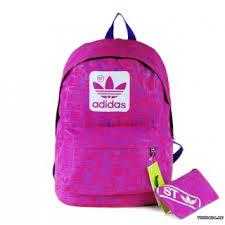
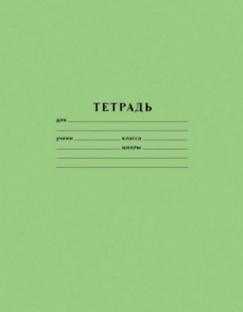
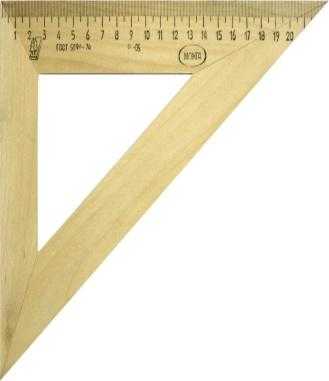
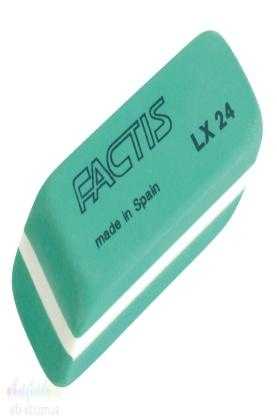

It is a pen. It is a book. It is a bag. It is an exercise-book. It is a ruler. It is a rubber. It is a pencil.
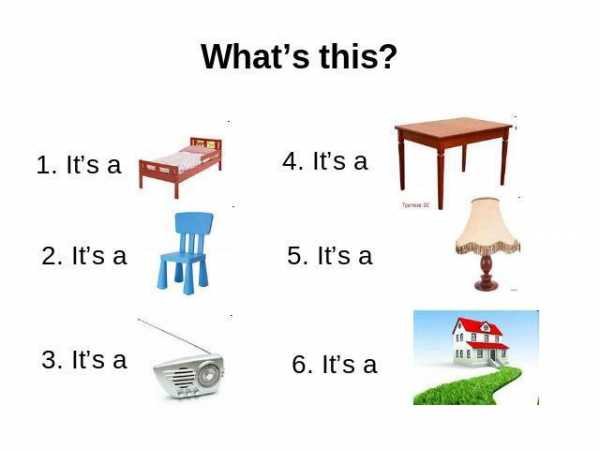
Task 3. Let’s answer the questions and act! Learn speaking English! Good luck!
– Hello!
– How are you?
– What is your name?
– How old are you?
– Who are you?
– Which class are you in?
– Where are you from?
– Where do you live?
– Good bye!
The rest time: Let’s play with me, please! Show mimic the action.
Stand up!
Sit down!
Sleep!
Wake up!
Get up!
Make your bed!
Do morning exercises!
Run!
Jump!
Dance!
Sing! Go to the bathroom! Wash your hands! Wash your face! Brush your teeth! Dry your hands and face with towels! Go to the kitchen! Set the table for breakfast! Prepare breakfast! Have breakfast! Eat!
Fixing the new theme: Find piece of word and translate.
| LE | OK | IR | BO | RUB | ARY |
| BO | PEN | EN | RU | DI | BE |
| TAB | BA | CIL | Y | BER | PIL |
| CHA | P | G | LER | PU | D |
Conclusion: Remember these letters! Singing a song “ABC”
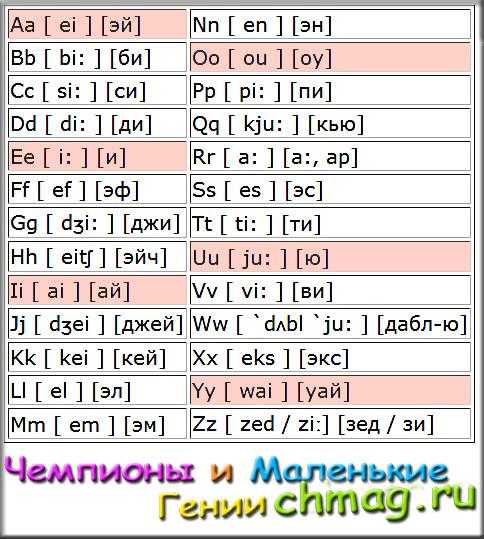
Giving homework: All review.
The end of the lesson. Giving the marks to pupils.
The lesson is over. Good bye!
Administrator: _________________________
South Kazakhstan Makhtaral region Gymnasium “Turan”
OPEN LESSON
The theme: We Learn English
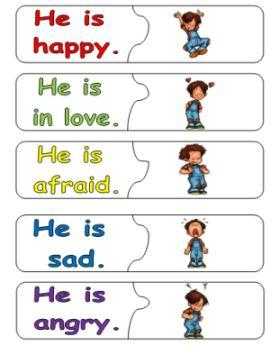
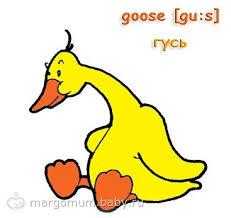

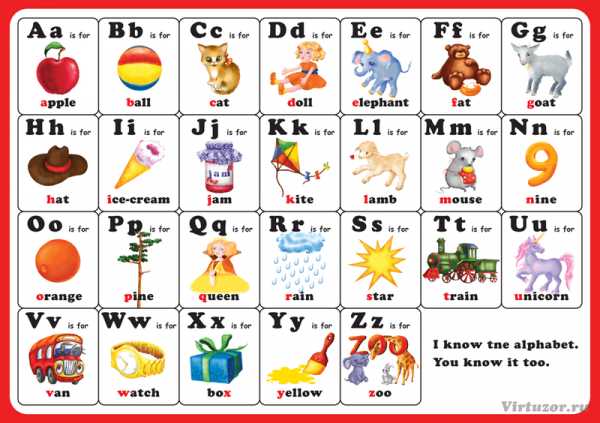
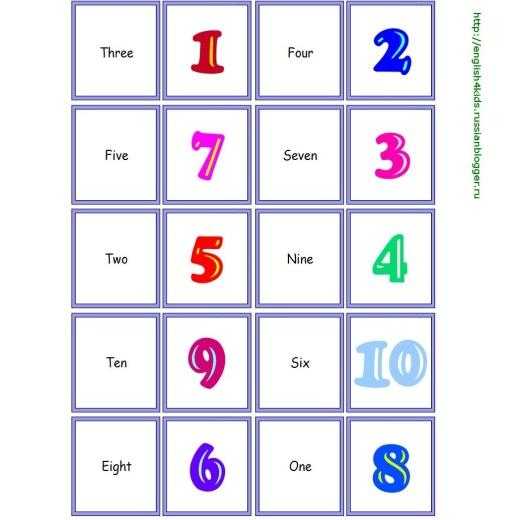
English teacher: Safarova Asem Grade: 1 “A,Ә”
Zhetisai city 2015-2016
videouroki.net
